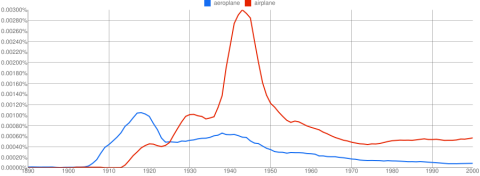Today, I received the news that not one but two conference abstracts I’d submitted have been accepted. Which means I’ll be going to some interesting conferences and listening to some interesting talks, but it also means that I’ve made a lot of extra work for myself in just one day. Well done, me!
The first of these conferences is entitled New Research in Military History: A Conference for Postgraduate and Early Career Historians, and organised by the British Commission for Military History and the Department of History, Politics and War Studies, University of Wolverhampton. It’s on 22 November 2014, i.e. just over a month, meaning I will have to leave my Newcastle stronghold temporarily for the wilds of the West Midlands. The title of my talk is ‘Folk strategy, Maubeuge platforms and Zeppelin bases in Britain, autumn, 1914’; the abstract is
As Catriona Pennell has shown, the fall of Antwerp in October 1914 led to a surge of rumours in Britain about covert German activity in Britain. These took very specific and unusual forms: in particular, the ideas that before the war German businesses had prepositioned concrete foundations in strategic locations in order to serve as platforms for heavy artillery, and that secret Zeppelin bases had been established in rural areas preparatory to air raids on British cities. The public belief in the truth of these rumours forced the authorities to take action, by raiding suspect business premises and searching the Highlands and the Lake District. In this paper, I will discuss the extent to which these rumours reflected prewar ideas about German invasion plans, but will also show how they were modified by news from the war, specifically claims about German plans relating the fall of Maubeuge in France and Antwerp in Belgium. I will also assess how far the rumours about Maubeuge platforms and Zeppelin bases can be understood within the framework of ‘folk strategy’, that is the popular, civilian understanding of military strategy. What British civilians understood about war in 1914 was very different to what their military counterparts understood about it: it was a dimly perceived and mysterious world of dark conspiracies and occult forces. How far this changed over the course of the war remains to be seen.
So, obviously this is inspired by recent blog posts; I think it’s an interesting episode which doesn’t appear to be well-documented anywhere, so it’s worth pulling it together and incidentally seeing if I can make the idea of folk strategy stick. Hopefully it could be something I can turn into a publication at some point, especially if I can find anything useful in the National Archives.
The second conference is called The First World War: Local, Global and Imperial Perspectives, and will be by the Centre for the History of Violence at the University of Newcastle. That’s Newcastle, Australia, not Newcastle, United Kingdom; but in fact it’s the original Newcastle I’ll be talking about. The title of my talk is ‘War in a Northern Town: News and Rumour in Newcastle upon Tyne’ and the abstract is:
As arguably the first total war, the First World War gave birth to the ‘home front’, a term affirming that civilians far from the battle front were nevertheless now inescapably part of the war. But the physical distance from local communities to their men in the real fighting made it all the more important to collapse the emotional distance between them, to believe and to show that they were in fact in the front line, sharing in the danger, that the enemy, too, realised their importance and was drawing plans to spy, to bomb or even invade. In this paper, I will examine the way in which news and rumour were used in Newcastle upon Tyne, an important shipbuilding and coal-mining centre on the north-east coast of England, to show how they were used to affirm the critical importance of the region to the British war effort. I will concentrate on the complex of stories communicated verbally or in print relating to the threats believed to be posed to Newcastle by enemy spies, Zeppelin raids and German invasion. I will end by briefly making comparisons with other types of wartime rumours, in Britain and in other countries, suggesting that this kind of ‘manufacturing war’ (per Michael McKernan, in the Australian context) was in fact a widespread phenomenon.
Again this is following on from my current project, but inevitably it’s a bit more speculative, since I haven’t done the Newcastle research yet. But by the time of the conference, 26 and 27 March 2015, I should have some idea of what’s going on.
![]() This work is licensed under a Creative Commons Attribution-NonCommercial-NoDerivatives 4.0 International License.
Permissions beyond the scope of this license may be available at http://airminded.org/copyright/.
This work is licensed under a Creative Commons Attribution-NonCommercial-NoDerivatives 4.0 International License.
Permissions beyond the scope of this license may be available at http://airminded.org/copyright/.





Okay, I’m totally lowering the tone around here, but I can’t stands it no more:
Lo, The Flat Hills of my Homeland
Longing For Wolverhampton
Unfortunately, I’ve had to withdraw from the Newcastle conference; partly because of time pressure, partly because (as I’ve noted previously), I didn’t really find much Newcastle (the other one) material in the archives. It’s a shame as the programme looks great. But hopefully I’ll make it to Newcastle in July for the AAEH!
Pingback: On the utility of rumours in wartime – Airminded